What were you doing at the tender age of 22? That’s how old Christian von Koenigsegg was when, in August 1994, the Swedish entrepreneur started his megacar company. It would take eight years before his inaugural design, the CC8S, finally reached a customer in 2002. Two decades later, Koenigsegg’s other-worldly road rockets continue to set benchmarks for ultra-performance sports cars, with Guinness World Records and with revolutionary technology. Here, TK interesting facts about Koenigsegg any gearhead will appreciate.
The Koenigsegg Regera’s Name Is A Jab At Other Hypercars
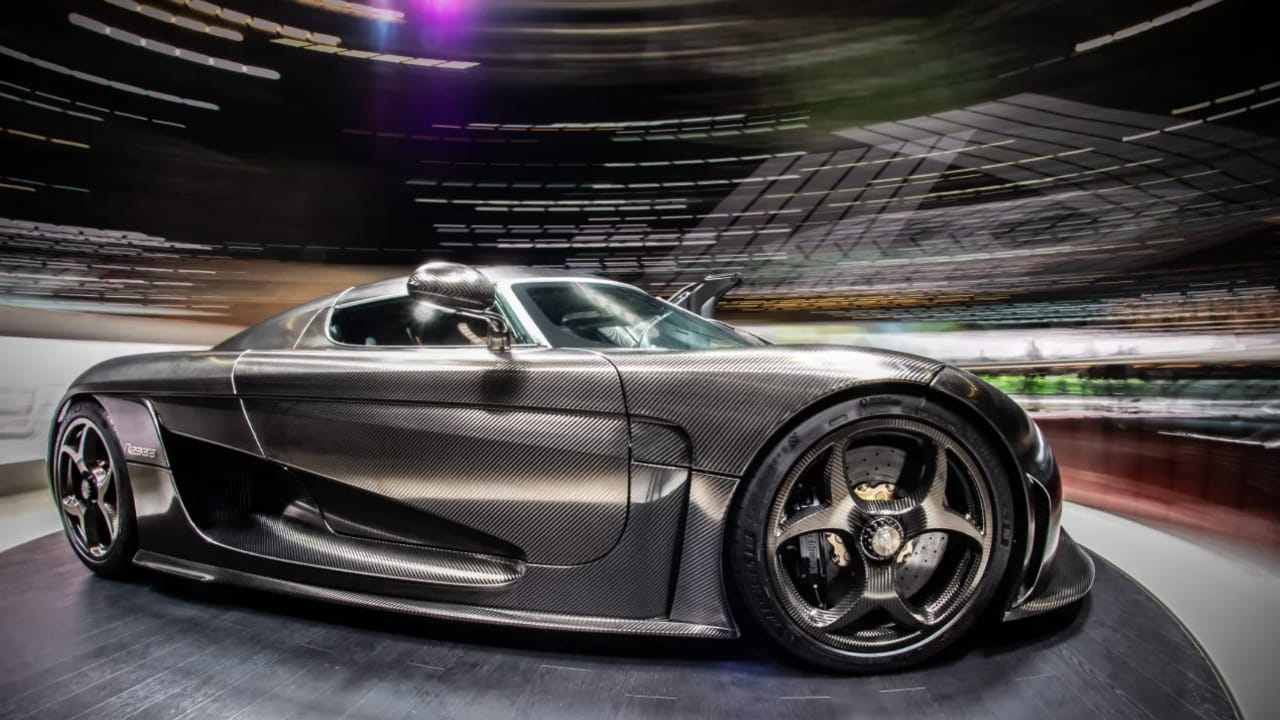
The 1,797-horsepower Regera, a plug-in hybrid that uses three electric motors in concert with a 5.0-litre twin-turbo V-8, debuted in March of 2015 at the Geneva Motor Show. The name “Regera” is a verb in Swedish that translates as “to reign” or “to rule.” Aptly selected, as the Regera broke world records for accelerating from 0-240-0. (It did the deed in 31.49 seconds, then later repeated the feat in 28.81 seconds.)
Regular Gullwing Or Scissor Doors Need Not Apply

Leave those two options for lesser supercars, Christian must’ve thought. Instead, Koenigsegg doors open outwards first, then swivel to move up vertically. This is technically called a dihedral synchro-helix system, and this is standard on all vehicles. The full name is even mouthier: Koenigsegg Automated Twisted Synchrohelix Actuation Doors, or KATSAD.
Koenigsegg’s Light Speed Transmission Is An Engineering Marvel
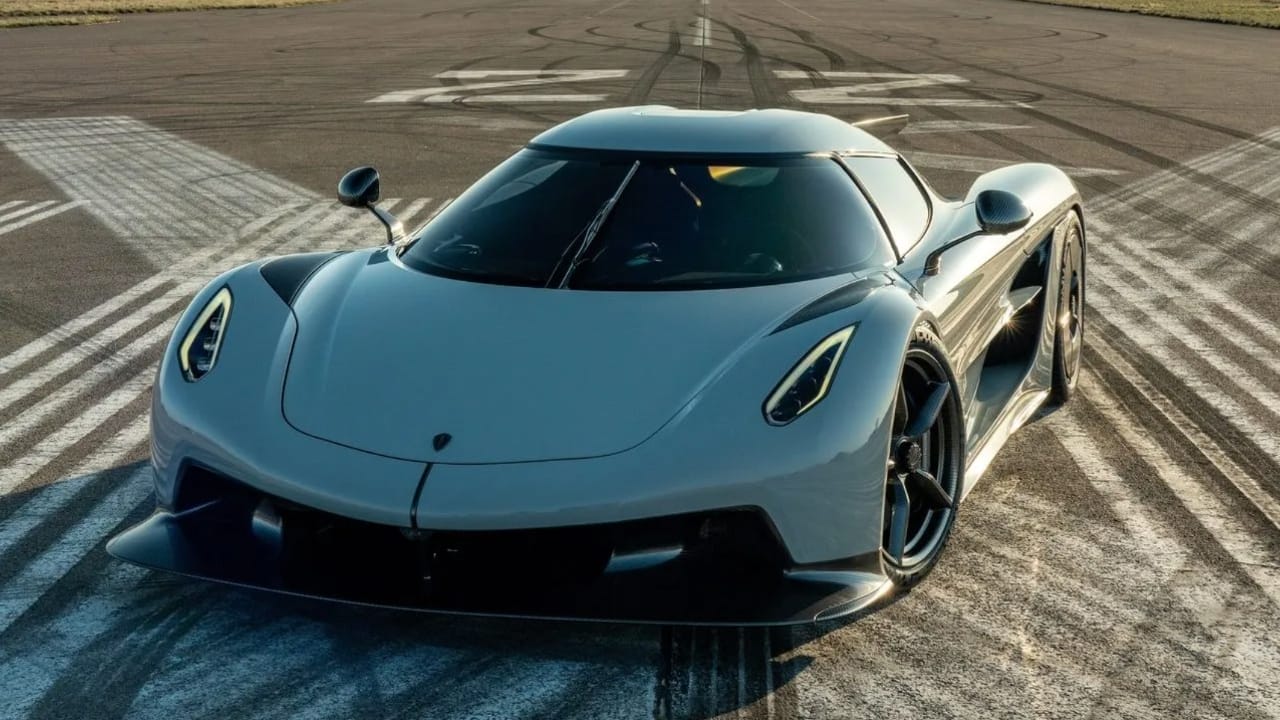
When introducing the Jesko—a 5.1-litre twin-turbo V-8 capable of producing 1,600-horsepower and 1,500 lb-ft of torque, when running E85 ethanol fuel—in 2019, there was much adieu about the new custom-made Light Speed Transmission. For good reason. It weighs under 200 pounds (lighter than a dual-clutch) and is half the length of Koenigsegg’s previous seven-speed DCT. It’s got nine forward gear options, and seven clutches, which allow it to perform gear changes in milliseconds without interrupting the power. You can instantly go from seventh to third, for example. Think of it somewhat like a bicycle’s derailleur gears, only lightning-quick.
Koenigsegg Coined The Term ‘Megacar’

Per the manufacturer, a megacar produces one megawatt of power, something it first achieved in the 1,341-horsepower One:1 in 2014. (And yes, 1,341 horsepower is equivalent to one megawatt.) The One:1 is officially pronounced “one-to-one” to hammer home another engineering marvel: it produces one horsepower per every one kilogram of weight. Not even the Bugatti Veyron Super Sport managed this; its power-to-weight ratio is 1:1.5. Other megawatt-producing cars followed, including the Regera, Gemera, Agera RS, and Jesko Absolut.
Audi Nearly Supplied The Early V-8 Engines
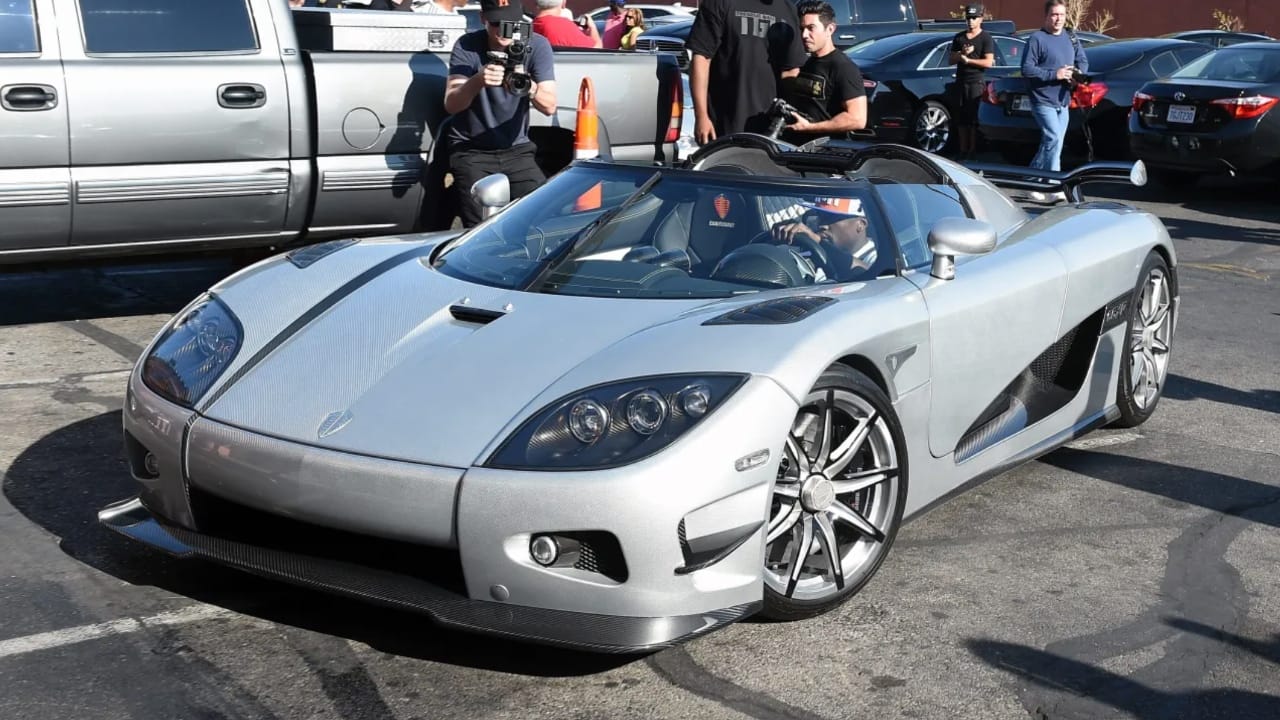
The aim of Koenigsegg was to create a machine that could topple McLaren’s F1 and its record setting 240 mph top speed. So his first stab was the CC, and the early prototype featured an Audi 4.2-litre V-8, with Audi eager to furnish mills for all Koenigseggs. However, when Audi learned Christian wanted to overhaul the engines to bring the power from the stock 335 horsepower to north of 600 horsepower, it balked at the deal and withdrew.
The Stig Crashed A CCX Through A Tire Wall
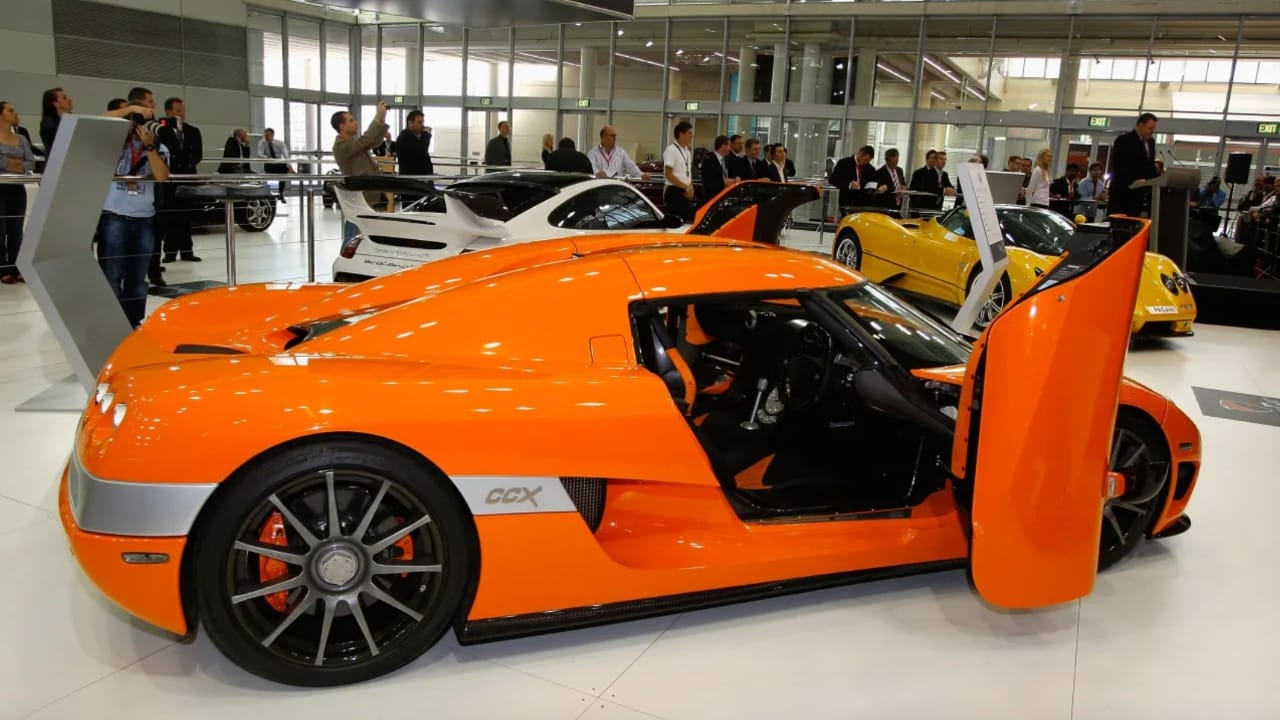
While filming Top Gear in 2007, Ben “The Stig” Collins lost control of a 806-horsepower CCX. On camera, no less. Coming around the Top Gear test track, the car snapped around at the Follow Through, and Collins added a dab of oppo-lock to wrestle it back, but when the tires finally bit, the CCX understeered right off the tarmac—at incredibly high speed—and into a tire wall. Watch this surprisingly big off here.
Every Single Component—Even Bolts And Nuts—Is Made In House
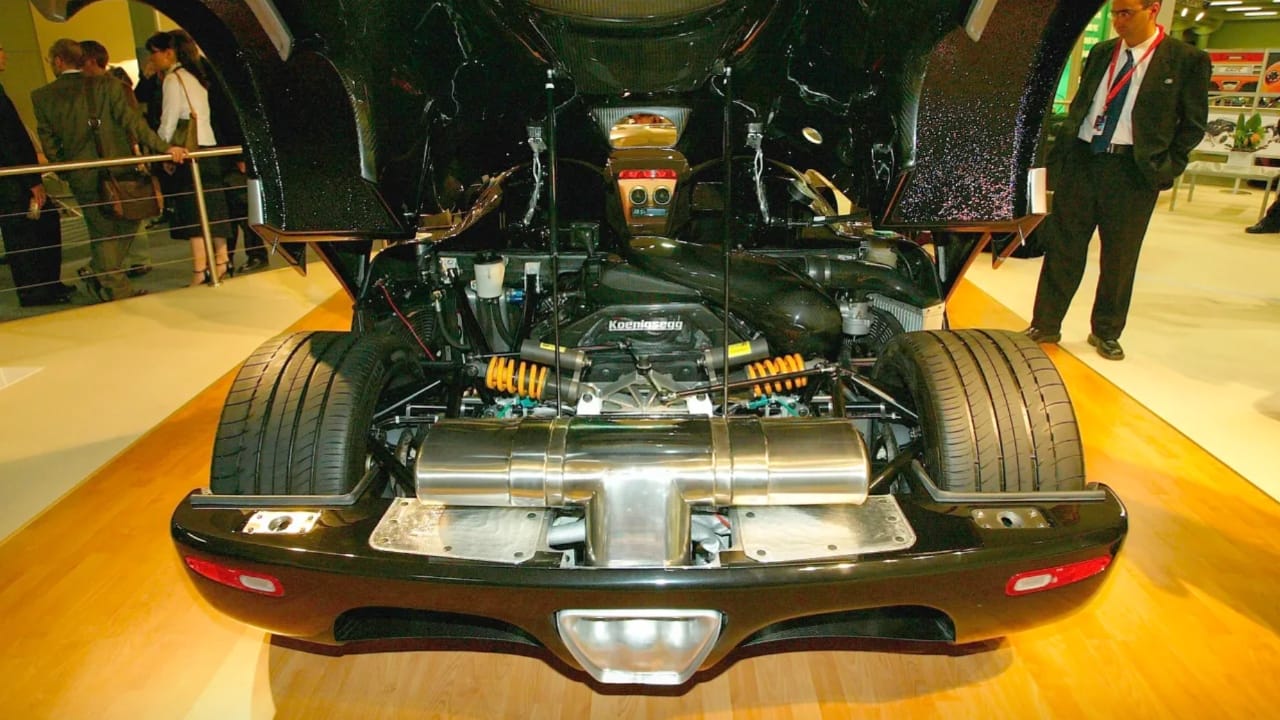
To construct a seven-figure supercar, it takes the team at Koenigsegg more than 4,000 hours. It’s all fabricated in house, at an old Swedish Air Force base in Ängelholm (so far south, it’s closer to Copenhagen, Denmark, than to Stockholm). And Koenigsegg makes all the pieces from scratch, even manufacturing its own titanium bolts and nuts.
The Koenigsegg Employee Parking Lot Is A Wild, Wonderful Place

The crux of the staff at Koenigsegg’s factory are proper motoring fanatics and there’s been some buss about the vehicles they daily. It’s deserved; on any given day, in the parking lot, there are some rare sights, particularly when you remember that this is Sweden and not middle America. Some of the more interesting employee cars include, a 1969 Camaro SS, a Ram 1500, a 1988 Mercury Grand Marquis, a Miata MX-5 (driven by the company’s test driver), a resto-modded Opel Kadett with a BMW transmission and a Volvo rear axle, a Tesla Roadster (that used to belong to Christian before he sold it to a staffer), and a slew of older BMW coupes.




